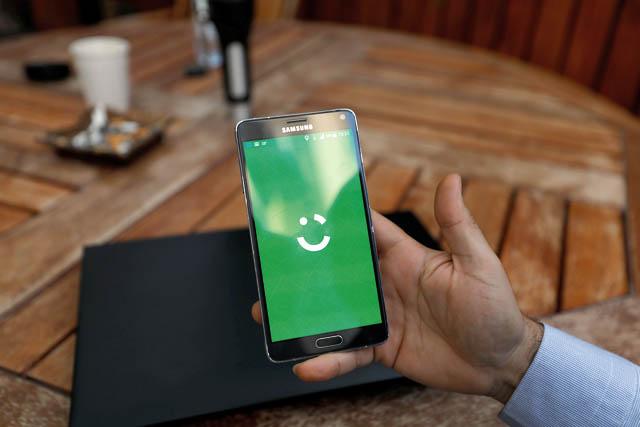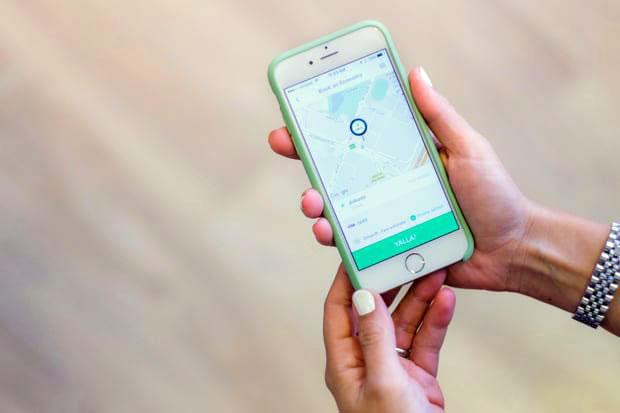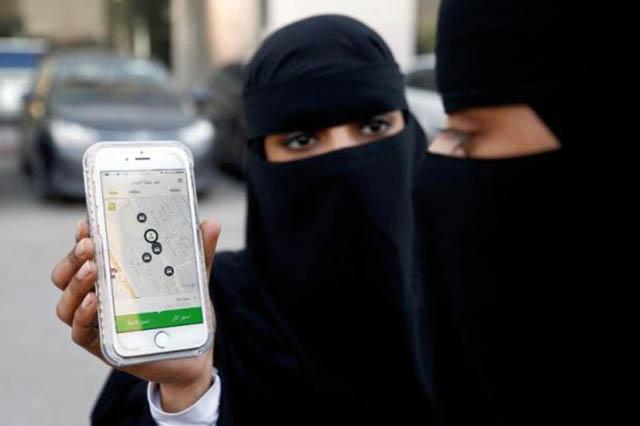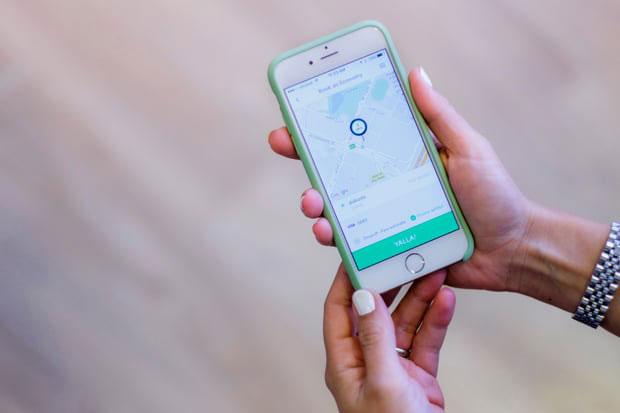You are here
Uber-style app ‘Careem’ goes off beaten track in West Bank
By Reuters - Jul 19,2017 - Last updated at Jul 19,2017

An employee shows the logo of ride-hailing company Careem on his mobile in his office in the West Bank city of Ramallah on Monday (Reuters photo)
RAMALLAH, West Bank — Careem, a Middle Eastern rival to Uber, has become the first ride-hailing firm to operate in the Israeli-occupied West Bank.
Dubai-based Careem, whose name is a play on the Arabic word for generous or noble, launched in Ramallah in June, aiming to bring digital simplicity to the Palestinian territory.
There is certainly a market for easier ride-hailing among the nearly 3 million Palestinians living in the West Bank, but the fact the mobile network is still 2G, that electronic payments are not the norm and that Israeli checkpoints are common, make using the service somewhat cumbersome.
Yet, Careem is optimistic about the potential.
“We are planning to invest hundreds of thousands of dollars within the coming year in the [Palestinian] sector,” Kareem Zinaty, operations manager for the Levant region said. “After the investment, it is also an opportunity to create jobs.”
Careem, which was launched in 2012 and now operates in 12 countries and more than 80 cities across the Middle East, Africa, and South Asia, has said it aims to provide work for one million people across the region by 2018.
Careem’s captains
While a version of Uber and Israeli app Gett already operate in Israel, they do not venture into Palestinian territory. Drivers are excited to work with Careem, which they hope will help boost their incomes, especially with unemployment in the West Bank running at nearly 20 per cent.
“It’s a very wonderful opportunity,” said one of the more than 100 new drivers, known as “captains” by Careem. “Most of the people who use it are young and happy with the price.”
Palestinians have limited self rule in parts of the West Bank, which they want for a future state alongside East Jerusalem and the Gaza Strip. Israel captured those areas in the 1967 Middle East war. It withdrew from Gaza in 2005, but still occupies the West Bank and East Jerusalem.
Under interim peace accords, Israel still controls 60 per cent of the West Bank, where most of its settlements are located. Careem’s drivers have Palestinian licence plates, meaning they usually cannot enter Israeli-controlled areas.
In 2015, Israel and the Palestinian Authority agreed to expand 3G mobile access to the West Bank by 2016, but have yet to implement the agreement. In the meantime, the Ramallah municipality has set up public WiFi in parts of the city centre, allowing Apps like Careem to be used more easily.
Despite 2G’s slower service, Zinaty said their model was an opportunity for telecommunication companies to look into expanding services and technologies to better serve Palestinian start ups and businesses.
Related Articles
AMMAN — The Land Transport Regulatory Commission recently amended the law regarding ride-hailing applications, limiting the total cars worki
RIYADH — Saudi Arabia’s Kingdom Holding Co.
AMMAN — The ride-hailing app Careem recently announced the expansion of its services to the towns of Madaba and Salt, drawing mixed reaction














